It is an understatement to say door locks are important. We all know the importance of household security, but how many of us know which specific lock types are most suitable for your doors?
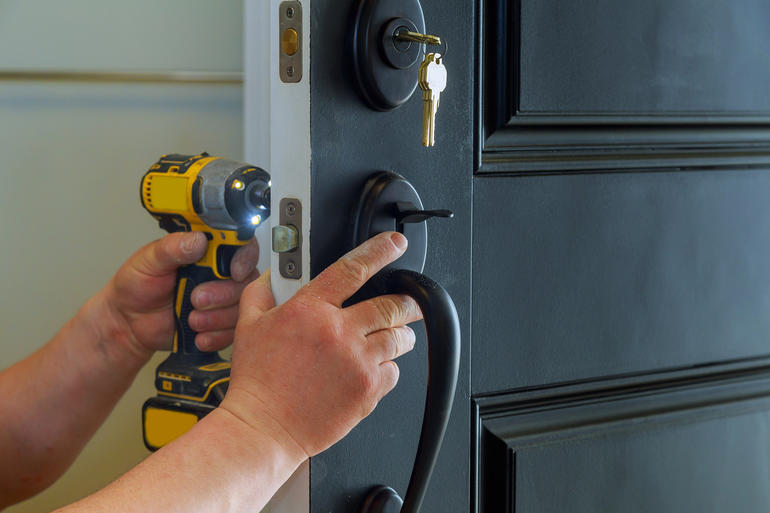
Increased homeowner/tenant knowledge and action, as well as technological advancements, have led to a decrease in burglaries in recent years.
According to the Office of National Statistics (year-ending June 2019):
Burglary offences recorded by the police saw a 4% decrease to 417,416, driven mainly by decreases in “residential burglary” (5%, to 291,816).
A decline in residential burglary is great news for all of us, but 291,816 is still a lot of burgled homes! We all need to remain smart, vigilant and do what we can to make our homes as off-putting as possible for would-be burglars.
Choosing the best locks for each door type makes a huge difference.
What are the main types of residential door locks?
There are several types of door lock compatible with residential doors, which you choose depends on your property requirements.
- Mortice latches
- Rack bolt locks
- Sashlocks
- Cylinder locks
- Slide bolts
- Surface bolts
- Night latches
- Multi-point locking systems
The type of lock you will need will depend on whether you are purchasing for internal doors or external doors.
Internal door locks are generally designed for ease of use and privacy, while they are less resistant to force. External locks are all about security and will usually require keys to operate from at least one side.
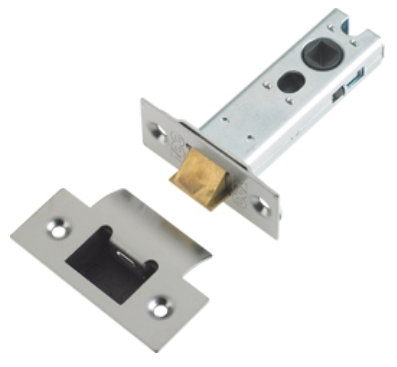
What is a mortice lock?
Mortice latches are heavy duty latches that are suitable for both commercial and residential applications.
They require a mortice (or pocket) to be cut into the edge of the door they are to be fitted to.
Mortice locks come in two parts: the lock body includes a strong locking bolt, operated by a key or other mechanism. They will also usually include a sprung latch, generally moved by the door handle.
Mortice locks are widely used in residential properties all over Europe and are known for their strength and usability.
What is a barrel bolt lock?

A barrel bolt lock is a simple, user-friendly lock designed for privacy over security. Barrel bolt locks are sometimes known as sliding bolt locks, or shoot bolts.
They generally feature a metal bolt with a knob or handle, in addition to a catch plate. The catch plate is mounted on the door frame so that the door can be locked by sliding the bolt into the receiving catch plate on the door frame itself.
Barrel bolt locks are ideal for bathrooms and outdoor gates that you may wish to secure from just one side. They do not usually require keys to operate.
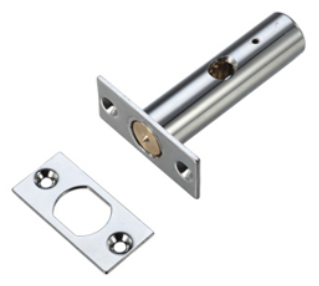
What is a rack bolt lock?
Rack bolt locks are security bolts designed to be concealed within a door. These bolts are recessed into the door and are driven by a key, which extends the bolts into the keep in the door frame itself.
Multiple rack bolts can be installed on a single door. They are commonly fitted in pairs, with one at the top and one at the bottom.
What is a cylinder lock?
Cylinder locks are also commonly known as pin tumblers due to the pin mechanism that operates the lock. A cylinder lock features a number of pins of varying lengths which prevent the lock from being opened without the right key. The key turns the cylinder, which moves an attached cam in and out of the recess to lock or unlock the door.
One of the biggest benefits of a cylinder lock, is that it can be changed without making changes to the boltwork. They are also versatile; it is possible to buy cylinders in different formats and sizes that can all be used with the same key type.
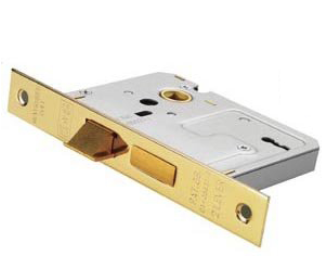
What is a sashlock?
A sashlock features a lock, latch and handle mechanism. It secures your door with a deadbolt and is one of the most popular types of lever lock on both interior and exterior doors.
Sashlocks can be locked by turning a key, but feature a built in latch which will ensure the door stays closed.
One of the principal benefits of a sashlock is that you can open and close the door, and not worry about whether or not it is locked behind you.
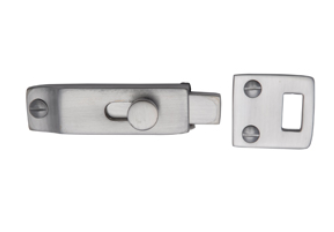
What is a slide bolt?
Slide bolts, also known as surface bolts, come in all shapes and sizes, and are a simple and effective lock for doors where privacy is needed.
They are generally popular with bathroom doors because they do not require a key to operate and can be engaged from the inside. They are also useful for holding less active doors in place.
Slide bolts are more commonly chosen for privacy over heavy-duty security; however, heavy-duty versions are also available.
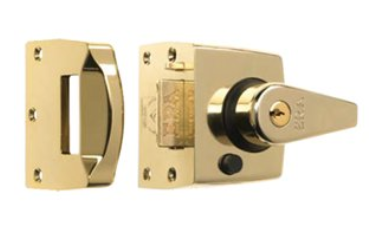
What is a night latch?
Night latches are ergonomic internal locking handles designed to prevent forced entry.
It is mounted onto the surface of the inner side of the door, rather than requiring any internal installation.
The latch locks automatically and can usually only be opened with a key; however, most models feature a button which can be pressed to hold the latch back to keep the door unlocked as required.
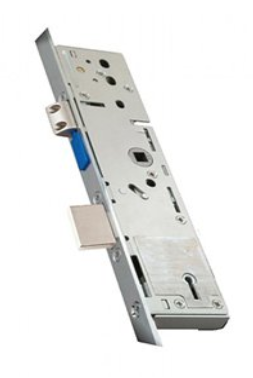
Multi-point locking systems
Multi-point locking systems are comprehensive, heavy-duty locks that feature everything you need for a secure door. They include locks, keys, handles and keeps.
A multi-point locking system bolts the door at multiple points with the turn of a single key. More bolt points means extra security.
These types of locks are often found on modern residential exterior doors, such as composite, solid core wood or UPVC models.
Door Locks: Frequently Asked Questions
Where can you buy door locks?
Door locks can be purchased from hardware stores, ironmongers and from locksmiths. The range of possible locks and configurations available make it very important that you buy your locks from a reputable seller with knowledge and experience in all things locks.
Doordeals sells each of the lock types featured in this article, which are compatible with all of the doors that we stock.
How do locks work?
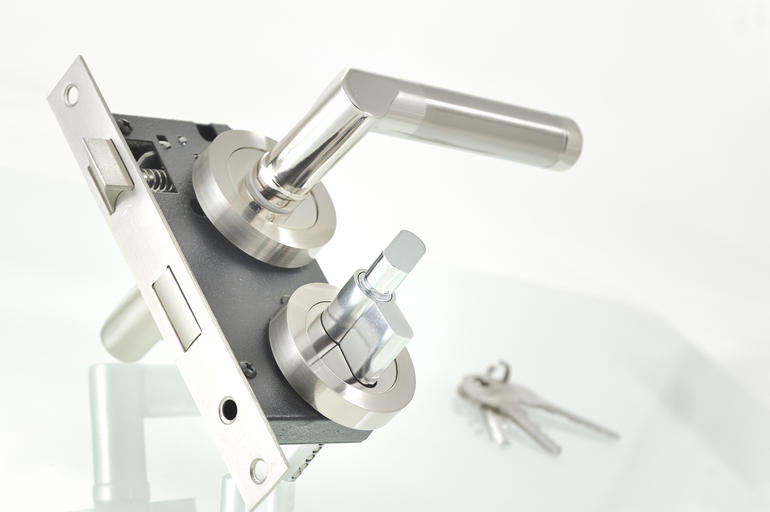
How a lock works depends on which specific lock type it is. Each type works differently, but almost all common locks feature some kind of bolt or other adjustable fastener which holds the door firmly in place when activated.
Some locks are key operated, while others can be engaged through a manual trigger, such as a knob or slider handle.
For more information about how a specific lock type works, scroll up to see our descriptions of each lock type.
What are the most secure door locks?
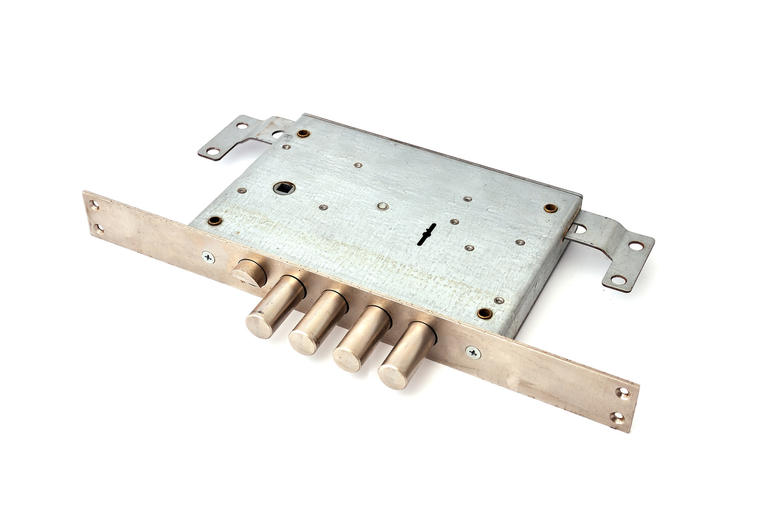
Identifying the most secure door locks requires consideration for your door type. Deadbolts, sashlocks, mortice locks and cylinder locks are well known for their ability to withstand a great deal of force. Multi-point locking systems also offer tremendous security thanks to the multiple bolts in play.
Locks such as lightweight slide and surface bolts are more appropriate for doors where privacy is a priority.
Remember, a strong and sturdy door and hinges are just as important as choosing the most secure locks.
Can you change door locks yourself?
While it is certainly possible to change your door locks yourself, providing you have the correct tools and expertise to do so, at Doordeals we strongly recommend having your door locks changed by a trained, qualified and reputable professional.
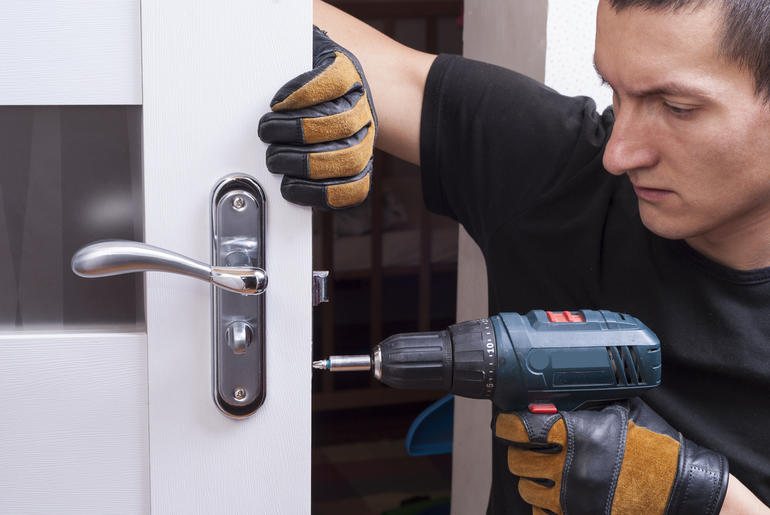
Pay close attention to the warranty details for your new lock; some warranty terms may stipulate that installation must be carried out by an approved locksmith. You can’t put a price on security; with external security lock changes, it is always worth ensuring the job is carried out properly.
How do bathroom door locks work?
There are a couple of different kinds of locks which are commonly used on bathroom doors, both public and residential.
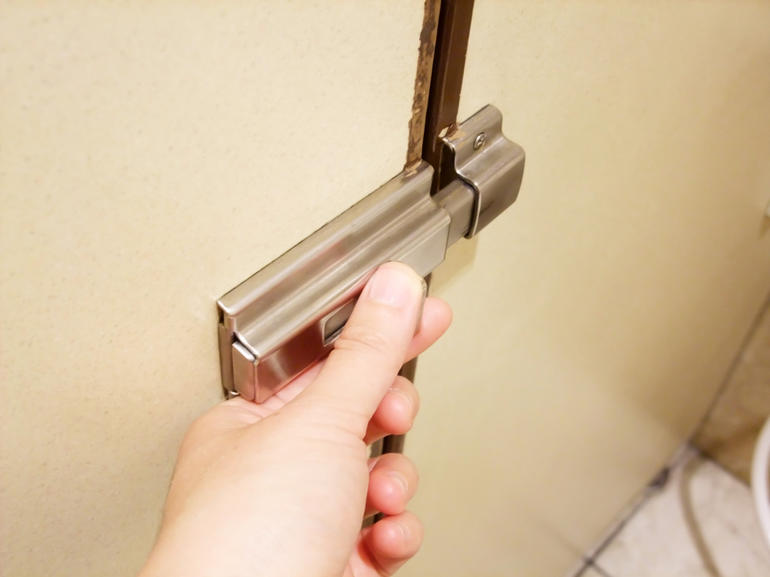
Slide bolts are simple but effective locks that are not mortised into the door; instead they are fixed onto the surface of the door so that the bolt can be slid in and out of the strike when locking. Slide bolts can be fit with additional security features, such as combination locks, but are generally manually operated without a key.
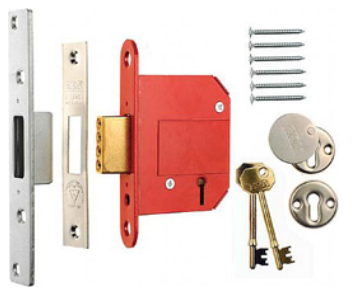
What are the best entry door locks?
Choosing the correct lock for your external (or entrance) doors is a very important security factor. The best entry door locks should be strong, sturdy and are generally key operated from one or both sides, though the external side should definitely be.
Mortice sashlocks and deadlocks are a dependable choice, as are multi-point locking systems, while night latches can also be added for an additional layer of entry door security.
How do you fix a jammed door lock?
There are many reasons why a door lock may be jammed. For locks with internal workings, it can be frustrating because you can’t see exactly what the problem is without dismantling things.
There are, however, a few tricks you can try before calling a locksmith.
- You can try coating your key with powdered graphite or, alternatively, spraying graphite into the keyhole. This lubricates the key and may help the pins move around any blockages, such as debris.
- If it has been especially cold (below freezing), some locks may struggle. If this is the case, try warming your key up slightly before trying again. You can warm your key simply by breathing on it.
- If your key is stuck in the door, you can use a specially made key extractor tool, which can be found at good hardware stores.
Because there are many causes and solutions to door locking issues such as jams, we strongly recommend contacting a locksmith unless you are certain you recognise the problem.
Never try and force a jammed lock as this may cause more damage.
